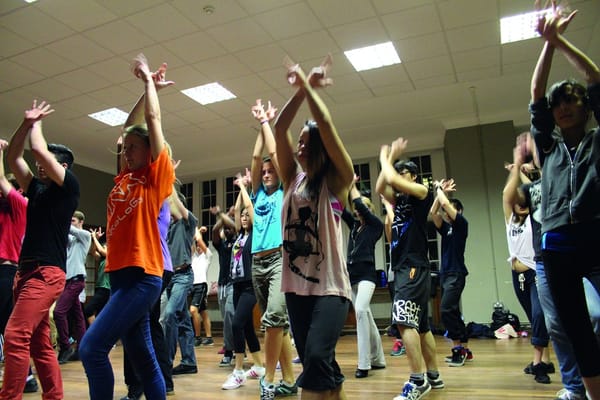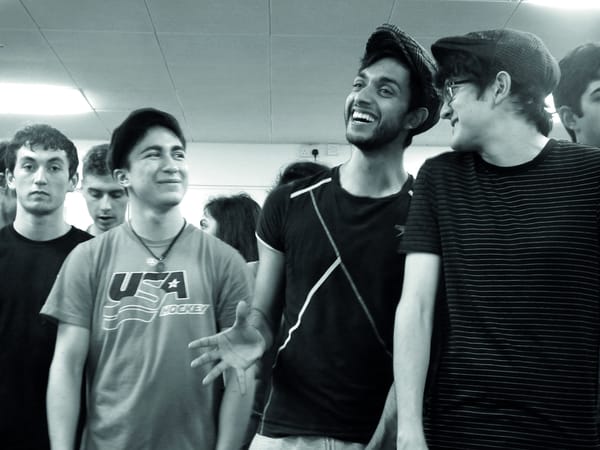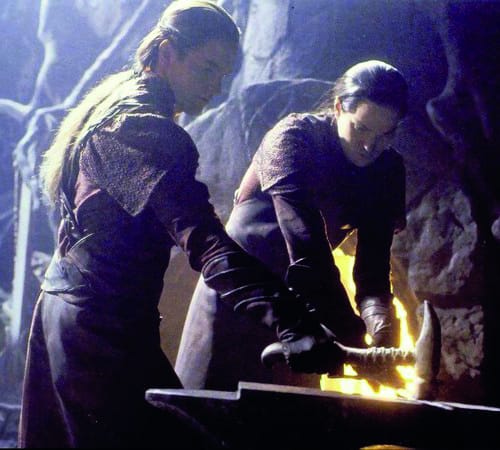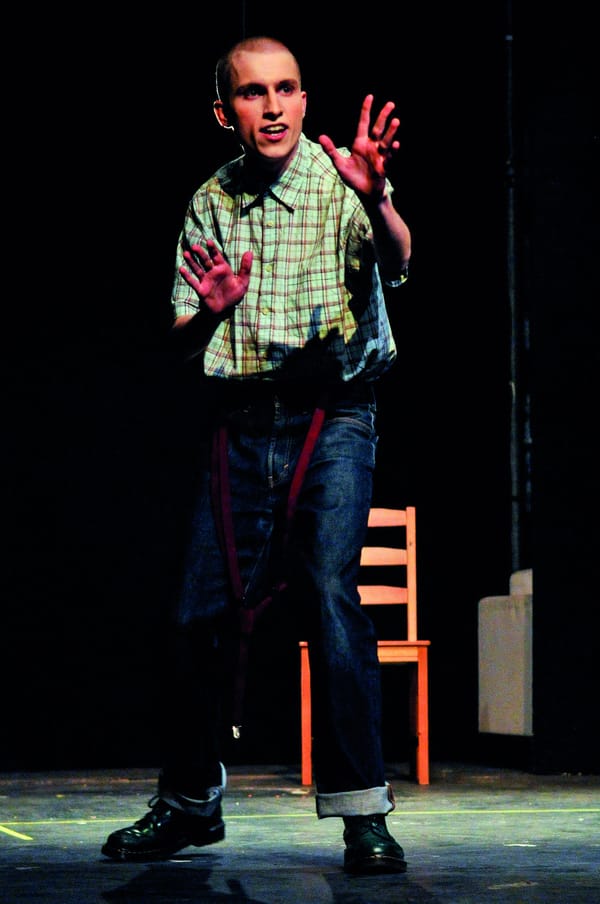Behold, the UK’s finest collegiate a cappella groups
Imperial hosted the UK semi finals of the International Championship of Collegiate A Cappella
Last weekend Imperial College played host to the vivacious, nerve-wracking, and outrageously outstanding International Championship of Collegiate A Cappella (ICCA) UK Semifinal competition: a massive undertaking attracting the best unaccompanied singing groups in the world.Nine of the UK’s best teams competed for just one place at the ICCA Finals in New York, to face off again against six American groups and a Wild Card category winner from anywhere in the world.
Hands free of all instruments (bar the occasional microphone at big competitions such as these), the performers are free to express themselves through carefully planned choreography as well as natural body language where none is in place.A cappella feels like a contradiction; we naturally assume that with more complicated setups and equipment come better music, so it is a sense of amazement as well as appreciation we feel when witnessing these performances by performers utilising nothing but their voices to evoke powerful emotions in the audience.
The origin of a cappella can be traced back to its use in religious music, all the way back to the late 15th century. It is unclear why exactly the unaccompanied vocal music became popular, but we can guess that it was either popularised by Christian opponents to the use of instruments in church music or the lack of instruments themselves. A cappella seems to have been revived at the opening of the 20th century, starting with the traditional music, then evolving with styles such as Barbershop in the 1930s slowly becoming the kind of performances we recognise.
I manage to find some performers before the event started, to find out their thoughts on the upcoming competition. “The competition this year is very, very good,” Sana Mohajer of the renowned all-male King’s College London group All the King’s Men tells me. “The standard is very high – all the groups know each other quite well from various national competitions,” implying of course that these are the standard high-fliers who tour the country on a regular basis.
His group, now in their fifth year, has won all the London regional finals of The Voice Festival UK in addition to the overall competition in 2012 and has previously qualified for the ICCA Finals twice already, as well as touring the whole world.
The three Imperial College home teams could not be more different in style from one another. The Scopes, Imperial’s mixed team entrants, concisely summed up their styles by comparing the groups to animal personalities.
“I guess we would be fireflies - when we were formed (the founding members are still in the group today) a few years back ‘Fireflies_’_ by Owl City was the first song we covered. Fireflies suit us as we’re very easy going and focus on having fun first of all and don’t worry too much about winning competitions like these. That doesn’t mean that we don’t give it our all, though!
“The Techtonics are Imperial’s oldest and most well-known group. An all-male ensemble of scientists and engineers into electronic music is definitely unique and interesting, but considering their personalities... definitely something canine. No, wolves would be better to describe them. But they’re cheeky on their off days too – cheeky wolves.
“On the other hand, we get the Imperielles – the sassy all-female group resident here. This one’s easy – swans. They’re elegant yet aggressive when you get too close to them: the perfect description.”
I ask Beth of the Imperielles what it’s like to be living out the film Pitch Perfect. Is the first time in such a big competition overwhelming, and you need to suspend your disbelief of the reality? “On the other hand, I’ve come to terms with it quite nicely,” is the reply. “Whenever my friends ask me what this is, I always start explaining with “Well, you know the film Pitch Perfect...”
Speaking to each group is very easy; all the members have similar but distinct personalities and keep a constant stream of playful chatter going on their way to finding an answer – it feels like speaking with one person with multiple voices rather than a group; that’s how close they are. I speak to Tammy, again from the Imperielles, about her upcoming solo.
“You have to remember that I haven’t been part of the group for very long at all,” she tells me. “Less than a year in fact - and now I’m about to sing in front of this massive audience and it would be a bare-faced lie to say that I’m not nervous at all.” Tammy went on to receive the special award for Best Soloist in the competition.
I didn’t get a chance to speak to Durham’s entry, The Northern Lights, but did witness their impressive performance on stage. Founded at the end of the 2012/13 academic year, they are Durham’s first a cappella group – showing just how much a cappella is exploding around the country over the last decade or so.
The biggest group and mixed group overall, they played it safe with upbeat pop arrangements. Even so, the harmony was fantastic to listen to and the group was relaxed on stage for their biggest competition yet, and they took home the award for Best Vocal Percussion for their beatboxer.
The Trinitones, Ireland’s only a cappella entry, put on a bolder performance. Arranging ‘Stacy’s Mom_’_ into a choral performance made the audience chuckle with delight and making fun of Akon along with mashing up his songs was on their agenda too. Just as the Durham group must have felt, being the only Irish entry put them under slightly more pressure than the others. “It’s not a question of what people assume – it is a fact that we are representing the whole of Ireland here because we are the only Irish here so it’s extra important that we give it our all.”
As a cappella expands, however, places like the North and Ireland will inevitably see more groups springing up and thus even more regional competitions to hone their skills in.
But when management of the group comes into play, there are bound to be tensions arising from differences of opinion, even among the closest of friends, right? “Absolutely not,” argues Rob, the president of the all-male Exeter group Semi-Toned. “I scream and shout at them all day but they’re so hardworking and understanding it’s unbelievable.”
Even for modern a cappella, Semi-Toned’s arrangements are still outlandishly brilliant, performing variations from Kanye West to Disney and Game of Thrones in the same routine. Their hard work and creativity paid off, coming second overall, and winning the Best Choreography award too.
Exeter’s all-girls group, Sweet Nothings, also qualified into this stage of the competition. “There’s definitely a bit of rivalry going on here, especially because we’re an all-girls team and they’re an all-boys team as well,” they tell me. “But it’s also healthy competition, of course; having another team to simultaneously compete against and support you is really great.” Their set was a seriously emotional one, full of deep meaning and heart-wrenching melodies.
Diversity and novelty are one of the cornerstones of a successful a cappella group, giving rise to the more sassy and interesting performances we see today. The Techtonics take this belief to another level: they deliberately don’t have a set style, motto, credo, or any rules at all to stick by when coming up with routines. “It’s the members which define the group, not the other way round,” they tell me.
Previous members often come to their concerts or watch them busking on Portobello Road on Saturday mornings to see which direction the group has taken since their departure.All the King’s Men hold the same view, with Sara telling me that the group plays to each member’s strengths and highlights the talents within the group.
“I’m a soul singer, so I get those kinds of solos, but we also have everything from pop to choral arrangements, simply because we have those kinds of singers who specialise in that stuff.”
Indeed, their performance did feature a choral arrangement, as well as hits from Wham and Tina Turner – winning their arranger the Outstanding Arrangement award. Their amazing display of excellence all around secured them their first place and the coveted entry in the ICCA Finals – but by only two points, 371 to Semi-Toned’s 369.
The hosts and guest stars, former competition winners turned professional, The Sons of Pitches, were engaging and creative with the audience throughout the evening. Formed in Birmingham in 2010, which is actually more recent than some of the competition entrants, they received many awards over the years for their singing.
After winning the ICCA’s International Wildcard Round in 2013 and competing in New York for the finals, The Sons of Pitches went on to become a professional a cappella ensemble, hosting these sorts of events around the country.
Putting on a simultaneously funny and astounding performance during the judging, there was never a dull moment as they kept singing right up until the judging was finished, meaning that the audience was always witnessing some amazing talent, be it song improvisation on the spot, renditions of a cappella club remixes, or inviting audience members on stage to perform with them. It was an auditory treat to hear them perform their first single ‘Laura’ live, with the assistance of a gospel choir which managed to sneak itself on backstage.
With the winners now looking to travel to New York to compete in the final against teams from around the world, it is incredible how far a cappella can take a group of students used to practising in empty lecture theatres or deserted seminar rooms. Felix wishes the best of luck to All the Kings Men, and will be waiting eagerly to hear how they get on over in the States.








